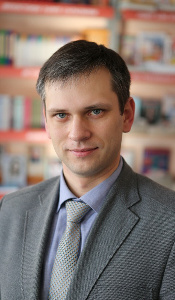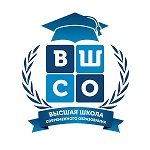САМООЦЕНКА ОБУЧАЮЩИМИСЯ СТАРШИХ КЛАССОВ ВЛАДЕНИЯ КОМПОНЕНТАМИ ИССЛЕДОВАТЕЛЬСКОЙ КОМПЕТЕНЦИИ (НА МАТЕРИАЛЕ МАТЕМАТИКИ)
Аннотация
Предмет и цель исследования. Предметом статьи является проблема самооценки обучающимися старших классов владения исследовательской компетенцией. Цель исследования: теоретически обосновать и практически подтвердить подход к разработке инструментария проведения самооценки обучающимися старших классов владения компонентами исследовательской компетенции на материале математики.
Методы. В исследовании использовались теоретические и эмпирические методы: анализ психолого-педагогической литературы; метод моделирования сценария самооценки; экспертный метод; корреляционный анализ. В экспериментальной апробации инструментария участвовало 25 школьников одиннадцатого класса.
Результаты. Выделены этапы разработки инструментария для самооценки, которые реализованы при разработке инструментария самооценки компонентов исследовательской компетенции обучающихся. Проведена экспериментальная апробация инструментария.
Выводы. В исследовании обосновано и подтверждено, что при наличии разработанного инструментария (сценария, оценочных материалов, четких инструкций и критериев) самооценка обучающимися компонентов исследовательской компетенции является адекватной.
Скачивания
Литература
Bershakova A.I. Svyaz’ samootsenki i uspevayemosti obuchayushchikhsya v podrostkovom vozraste [The relationship between self-esteem and academic performance in adolescence]. Bulletin of modern research, 2018, no. 1.1(16), pp. 55–56.
Bozhovich L.I. Lichnost’ i yeye formirovaniye v detskom vozraste [Personality and its formation in childhood]. SPb.: Petersburg, 2008, 398 p.
Kerer O.P. Sovershenstvovaniye otsenochnoy deyatel’nosti pedagogov v svete realizatsii kompetentnostnykh standartov [Improving the assessment activity of teachers in the light of the implementation of competence standards]. Innovative development of vocational education, 2014, no. 1(5), pp. 78–81. http://chirpo.ru/files/72/jurnal_5_2014.pdf
Kizhevatova V.A., Jakovleva T.A. Samootsenka kompetentsiy i professional’nykh kachestv obuchayushchikhsya v vuze [Self-estimation of competences and professional skills of people studying at the higher school]. Bulletin of the Moscow State University of Instrument Engineering and Informatics. Series: Socio-economic sciences, 2011, no. 33,
pp. 91–99.
Kirillova D.A., Belova O.N. Metodicheskiye aspekty obucheniya elementam issledovatel’skoy deyatel’nosti na urokakh matematiki [Methodological aspects of teaching elements of research activities in mathematics lessons]. World of Science. Pedagogy and psychology, 2019, vol. 7, no. 4. https://mir-nauki.com/20PDMN419.html
Kuznetsov V.V., Protsenko A.I. Kriterii razvitiya issledovatel’skikh umeniy obuchayushchikhsya v sisteme «shkola – kolledzh» [Criteria of efficiency of research abilities training in the system “school - college” ]. Modern Problems of Science and Education, 2020, no. 3. http://science-education.ru/ru/article/view?id=29850
Lipkina A.I. Samootsenka shkol’nika [Student self-esteem]. Moscow: Knowledge, 2015.64 p.
Magomedov R.R., Idrisova E.S., Shmakova N. Formirovaniye poznavatel’nykh umeniy uchashchikhsya v protsesse issledovatel’skoy deyatel’nosti [Formation of cognitive skills of pupils in the process of research activities]. Bulletin of the Orenburg State University, 2018, no. 6. pp. 34–39. https://doi.org/10.25198/1814-6457-218-34
Minina I.V., Petukhova T.P. Organizatsiya proyektno-issledovatel’skoy deyatel’nosti shkol’nika v sovremennykh usloviyakh [Organization of project and research activity of a student in modern conditions] Modern information technologies and IT-education, 2019, vol. 15, no. 4, pp. 1031–1046. https://doi.org/10.25559/SITITO.15.201904.1031-1046
Order of the Ministry of Education and Science of the Republic of Kazakhstan dated October 31, 2018 No. 604 «On approval of state compulsory education standards at all levels of education» (with amendments and additions dated 28.08.2020). https://adilet.zan.kz/rus/docs/V1800017669 (accessed Feb 10, 2021).
Sanina E.I., Martynova N.A. Formirovaniye opyta issledovatel’skoy deyatel’nosti kak usloviye samoaktualizatsii lichnosti obuchayushchegosya [Formation of experience of research activity as a condition of self-actualization of personality of the student]. Problems of modern pedagogical education, 2017, no. 57-5, pp. 304-311. http://science.cfuv.ru/wp-content/uploads/2017/03/vyp-57-p-5-2017.pdf
Strizhak S.V. Formirovaniye issledovatel’skikh umeniy shkol’nikov starshikh klassov [Formation of research skills of high school students]. International Journal of Applied and Fundamental Research, 2017, no. 4-1, pp. 255–257. https://applied-research.ru/ru/article/view?id=11369
Sukhanova N.V., Dzhabieva G.F. Sredstva formirovaniya issledovatel’skoy kompetentsii obuchayushchikhsya 10 klassa pri obuchenii resheniyu trigonometricheskikh uravneniy i neravenstv s parametrami [Means of formation of the research competence of trained 10 classes at training to the decision of the trigonometrical equations and inequalities with parameters]. Bulletin of the South Ural State Humanitarian Pedagogical University, 2019, no. 2. pp. 179–193. https://doi.org/10.25588/CSPU.2019.51.85.013
Tereshchenkova E.V. Spetsifika obrazovatel’noy samootsenki obuchayushchikhsya [Specificity of educational self-assessment of students]. Forum. Series: Humanities and Economic Sciences, 2016, no. 3 (9), pp. 13-15.
Urtenov N.S. Zadachi nestandartnogo soderzhaniya kak sredstvo formirovaniya issledovatel’skikh umeniy uchashchikhsya osnovnoy shkoly [Custom content tasks as means of formation of research abilities of primary school pupils]. Problems of modern pedagogical education, 2017, no. 55-3, pp. 280-286.
Federal State Educational Standard. Order No. 413 of the Ministry of Education and Science of Russia dated 17.05.2012. https://fgos.ru/#001d1b20ca6240844 (accessed Feb 10, 2021).
Firsova E.A. Formirovanie issledovatel’skoy kul’tury starsheklassnikov [Formation of the research culture of high school students]: Author’s abstract. dis. ... cand. ped. sciences. Volgograd, 2017. 216 p.
Shestakova L.G., Murzabaeva U.O. Uchebno-issledovatel’skaya deyatel’nost’ kak sredstvo formirovaniya poznavatel’nykh universal’nykh uchebnykh deystviy (na materiale matematiki 9–11 klassov) [Educational and research activities as a means of forming cognitive universal educational actions (on the material of mathematics 9–11 classes)]. International Journal of Experimental Education, 2018, no. 9, pp. 32–36. http://www.expeducation.ru/ru/article/view?id=11833
Shestakova L.G., Kharitonova E.A. Ispol’zovaniye samootsenki i vzaimootsenki dlya formirovaniya professional’nykh kompetentsiy obuchayushchikhsya pedagogicheskogo vuza [Self-assessment and peer assessment as a means of the development of professional competencies of students of a pedagogical university]. Problems of modern pedagogical education, 2016, no. 50(3), pp. 216-224.
Shmigirilova I.B., Chugunova A.A., Pustovalova N.I. Razvitiye analitiko-sinteticheskoy deyatel’nosti studentov v protsesse obucheniya matematicheskomu analizu [The development of students’ analytical and synthetic activities in studying mathematical analysis]. Science for Education Today, 2019, vol. 9, no. 3, pp. 121–137. http://dx.doi.org/10.15293/2658-6762.1903.07
Admiraal W., Huisman B., Pilli, O. Assessment in massive open online courses // Electronic Journal of e-Learning, 2015, vol. 13, no. 4, pp. 207–216. https://files.eric.ed.gov/fulltext/EJ1062116.pdf
Andrade H. L. Classroom assessment in the context of learning theory and research. In J. H. McMillan (Ed.), Sage handbook of research on classroom assessment. Los Angeles: SAGE, 2013, pp. 17–34.
Andrade H. L. A Critical Review of Research on Student Self-Assessment. Frontiers in Education, 2019, vol. 4. https://doi.org/10.3389/feduc.2019.00087
Black P., Wiliam D. Developing the theory of formative assessment. Educational Assessment Evaluation and Accountability, 2009, vol. 21, pp. 5–31. https://doi.org/10.1007/s11092-008-9068-5
Brown G. T., Harris L. R. Student self-assessment. In J. H. McMillan (Ed.), Sage handbook of research on classroom assessment. Los Angeles: SAGE, 2013, pp. 367–393.
Butler Y.G. Young learners’ processes and rationales for responding to self-assessment items: cases for generic can-do and five-point Likert-type formats. Useful Assessment and Evaluation in Language Education. Washington, DC: Georgetown University Press, 2018, pp. 21–39. https://doi.org/10.2307/j.ctvvngrq.5
De Grez L., Valcke M., Roozen, I. How effective are self- and peer assessment of oral presentation skills compared with teachers’ assessments? Active Learning in Higher Education, 2012, vol. 13, no. 2, pp. 129–142. https://doi.org/10.1177/1469787412441284
Doyle E., Buckley P. Research ethics in teaching and learning. Innovations in Education and Teaching International, 2014, vol. 51, no. 2, pp. 153-163. https://doi.org/10.1080/14703297.2013.774137
Hardway C.L., Using Student Choice to Increase Students’ Knowledge of Research Methodology, Improve Their Attitudes toward Research, and Promote Acquisition of Professional Skills. International Journal of Teaching and Learning in Higher Education, 2014, vol. 26, no. 3, pp. 381–392. https://files.eric.ed.gov/fulltext/EJ1060869.pdf
McMillan J.H., Hearn J. Student Self-Assessment: The Key to Stronger Student Motivation and Higher Achievement. Oxford: Oxford University Press, 2008, pp. 40–47.
Panadero E., Romero, M. To rubric or not to rubric? The effects of self-assessment on self-regulation, performance and self-efficacy. Assessment in Education: Principles, Policy & Practice, 2014, vol. 21, no. 2, pp. 133–148. https://doi.org/10.1080/0969594X.2013.877872
Yan Z., Brown G. T. L. A cyclical self-assessment process: towards a model of how students engage in self-assessment. Assessment & Evaluation in Higher Education, 2017, vol. 42, no. 8, pp. 1247–1262. https://doi.org/10.1080/02602938.2016.1260091
Просмотров аннотации: 351 Загрузок PDF: 252
Copyright (c) 2021 Lidia G. Shestakova, Irina B. Shmigirilova

Это произведение доступно по лицензии Creative Commons «Attribution-NonCommercial-NoDerivatives» («Атрибуция — Некоммерческое использование — Без производных произведений») 4.0 Всемирная.































